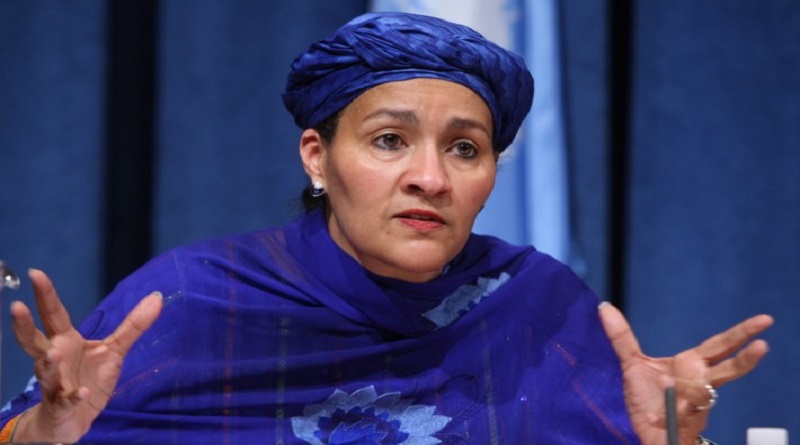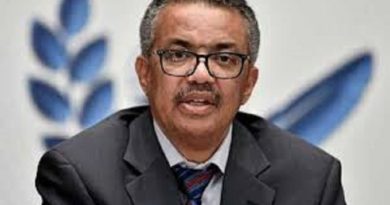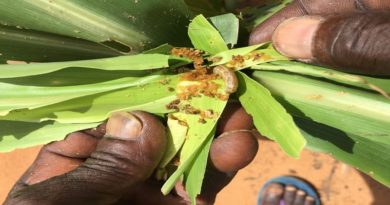Addressing root causes of conflicts key to sustainable development in Africa, says UN Deputy Chief
Africa cannot have sustainable development without sustaining peace, United Nations Deputy Secretary General, Amina Mohammed said Saturday.
Speaking at the 20th Session of the Regional Coordination Mechanism for Africa (RCM-Africa) and the Third Joint Meeting of the Regional United Nations Sustainable Development Group in Marrakesh, Morocco, Ms. Mohammed said it was crucial for Africa to turn the pages of conflict, where it remains on the continent, and start building peace that in turn can transition into sustainable development.
“We cannot have sustainable development without sustaining peace, neither can we build a secure future for everyone without addressing the root causes of our conflicts and vulnerabilities,” she told participants gathered to discuss and generate solutions to the continent’s refugee and internally displaced persons challenge.
Ms. Mohammed added that climate change, rising inequalities, persistent gender discrimination, lack of social cohesion, ‘conflicts in its many different forms, deteriorating political consensus and the mass movement of people across borders are signs of the hindrance we are having to face. Challenges that know no borders and cannot be resolved through solutions of the past’.
She said viable solutions were possible, especially as the United Nations and the African Union Commission continue to work together.
“We do go further when we join hands for a common cause, on common grounds and when we bring the best of our assets and leadership around the continent,” the UN Deputy Chief said as she applauded the strong AU-UN partnership.
“Today offers the opportunity to recognize our common challenges and maximize the impact of our regional work. The RCMs can help to galvanize and accelerate progress towards the sustainable development goals in various areas, including integration across all dimensions of sustainable development, as well as integration across development, humanitarian and peace,” she said.
She added: “The clock is ticking on 2030 and 2063 Agendas, and we will only truly be successful in the reforms if we can accelerate our actions or scale-up to the SGDs. It is a collective responsibility and we are engaging with a greater urgency to deliver. We have to find our courage, ingenuity and the means to rise to the ambition of our actions and move with far greater speed.”
Ms. Mohammed also spoke about the need for Africa to do all it can to ensure the potential of its youth is realized, adding more also needs to be done to close the gender gap.
She said Africa hosts the largest number of displaced persons worldwide, with factors including political upheaval, food insecurity, and poverty, among others being major driving forces.
“Whatever the cause or crises, Africa’s response has been admirable; countries have demonstrated remarkable solidarity, often despite the little means that we have,” said Ms. Mohammed.
She said through its successive reform programmes, the UN has been working to create a more coherent, effective and efficient support and delivery mechanism to guarantee a better life for all citizens of the world without leaving ‘no one behind’.
But, she added, the data that is emerging suggests that ‘we are not on track to meet the 2030 Agenda, which means that we need to accelerate to meet the ambitions we have set for ourselves’.
“In 2019, we will have a defining year to deliver on the promises we have made to humanity through Africa 2063 Agenda and the global 2030 Agenda,” Ms. Mohammed added.
The two-day meeting, organized by the Economic Commission for Africa and the AUC, also aims to deliberate on the functioning of the RCM-Africa and the Africa Regional United Nations Sustainable Development Group platforms, and also assess achievements, challenges and the way forward in strengthening the coherent and efficient delivery of support to the African Union and its organs in the context of African Union and United Nations reforms.



